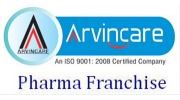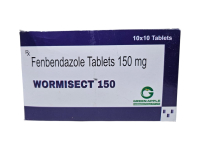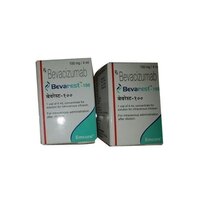
Content
- Hepatitis C treatment: indications and contraindications
- Which doctor deals with the treatment of hepatitis C
- How is hepatitis C treated?
- The body's response to medications
- How to cure hepatitis forever
- How much the treatment might cost
- The likelihood of developing complications
- Forecast
- Prevention
A person in whose body the HCV virus is found has a lot of questions. Is Hepatitis C Cure Possible? How long will the treatment take? What difficulties will you have to face? To find the answers, you need to figure out what kind of infection it is, how dangerous it is and what to do to a person who has been diagnosed with such a diagnosis.
Hepatitis C treatment: indications and contraindications
Not all patients are treated for hepatitis C. The doctor who decides to start therapy takes into account the rate of development of the disease and its stage, the general clinical picture, the genotype of the virus, and the results of the patient's examination.
Antiviral drugs are prescribed:
- in the case of the onset of a pathological process or with a high risk of cirrhosis (especially decompensated);
- with an increase in ALT levels;
- when detecting 2 and 3 genotypes of the causative agent of the disease;
- when cryoglobulins are found in the patient's blood.
To combat viral hepatitis C, agents based on "Interferon" and "Ribavirin" are used. The duration of the course of treatment is one year. The method of treatment is developed individually, taking into account the results of laboratory tests, the weight of the patient, the types of medications prescribed.
Patients with mild hepatitis C are not prescribed treatment. The specialist keeps under control the dynamics of the development of the disease, regularly checks the condition of the liver, monitors blood counts (including cholesterol). In this situation, it is very important not to miss the moment at which the disease can enter the active stage.
Medicines used to treat hepatitis C have a negative effect on other organs: when prescribing them, it is worth remembering that there are contraindications. If they are, antiviral therapy should be either completely canceled or milder drugs should be used. However, when they are used, the infection may return.
Antiviral treatment is contraindicated in patients:
- Suffering from severe hypertension and having problems with the circulatory system. With ischemia and diabetes mellitus, malfunctioning of the thyroid gland and the presence of malignant processes, it is also prohibited to use antiviral medicines.
- In a state of depression, which is impossible to get rid of even with the help of psychotherapy and medications.
- With hepatitis, which is of a non-infectious nature.
- Those who consume alcoholic beverages or drugs.
- With epilepsy and mental disorders.
- Interferon intolerant.
- With cirrhosis in the last stage.
Also, antiviral agents should not be prescribed to pregnant women (at any time) and women planning to conceive.
Which doctor deals with the treatment of hepatitis C
Often people find out about the presence of the hepatitis C virus completely by accident, for example, when passing a test. After the diagnosis is made, many are lost and do not understand at all what to do next. You should not panic in any case! In this situation, the most important thing is to immediately contact a competent specialist. You will be able to choose an effective treatment regimen:
- Therapist . This specialist should be consulted for almost any health issue. Having the results of a complete diagnosis, the therapist will prescribe treatment or refer the patient to his colleague - a narrow specialist.
- Infectionist . A physician who treats patients with acute hepatitis. This specialist will prescribe the treatment of the underlying disease and develop a rehabilitation therapy regimen. In addition, he will monitor the development of hepatitis (including secondary).
- Hepatologist . A doctor who specializes in the treatment of chronic liver diseases such as cirrhosis.
Those who have been diagnosed with hepatitis C should visit these specialists. By the way, the first on the list may be a gastroenterologist: he needs to complain about pain in the abdomen and right side, impaired appetite and the appearance of nausea. The specialist will prescribe a series of laboratory tests (to find the cause), select treatment, or refer you to a narrow-profile doctor.
How is hepatitis C treated?
In some cases, at the initial stage of the disease, experts are in no hurry to prescribe drugs and advise patients to wait several weeks. The fact is that thanks to strong immunity, antibodies can begin to be produced and the body will be able to defeat the infection on its own.
Treatment can be postponed if:
- The patient is not yet 35 years old;
- In the test results, all indicators are normal (or with minimal deviations);
- The patient has no chronic diseases;
- The patient leads a healthy lifestyle and does not eat harmful products;
- The ultrasound results show that there are no abnormalities in the liver and spleen;
- The infection occurred less than 12 months ago.
In other cases, patients are treated according to a specially designed regimen. Medicines, selected according to the type of hepatitis, suppress the virus, destroy it, support liver function and strengthen the immune system.
The body's response to medications
"Interferon" and "Ribavirin", like all powerful drugs, have side effects. Young patients tolerate them more easily than older patients.
When the lighter "Ribavirin" is used, the blood formula changes in some patients, erythrocytes begin to break down, dyspepsia appears, and the level of uric acid rises in the blood. Also, those taking "Ribavirin" complain of headaches and allergies (mainly in the form of abscesses).
"Interferon" has more severe "side effects":
- Chills and malaise appear after injection.
- A couple of hours after the injection, the temperature may rise, the whole body will begin to ache, and aches in the joints will appear. This state persists for several days, then the state of health gradually returns to normal. It will take at least a month for the body to adapt.
- After two to three months, while taking the drug, the number of leukocytes and platelets begins to decrease. In such a situation, a dosage reduction or complete withdrawal of the drug is required.
- In rare cases, the thyroid gland malfunctions, the patient develops depression, hair loss and weight loss.
How to cure hepatitis forever
Many experts note a positive trend in the drug treatment of hepatitis C. It should be remembered that thanks to preventive examinations, you can detect the virus at an early stage, immediately take the necessary measures and defeat the disease. Chronic hepatitis C can also be cured, but this takes a much longer period of time.
The patient undergoing treatment must not only take the drugs prescribed for him, but also:
- urgently stop drinking alcohol and quit smoking cigarettes;
- change the diet: the diet should be low-calorie (experts recommend, for example, to drink kefir more often);
- minimize the occurrence of stressful situations:
- get enough sleep to recuperate, and walk in the fresh air.
Only by fulfilling all the requirements of the attending physician, one can count on a successful treatment outcome for this terrible and insidious disease.
How much the treatment might cost
The cost of therapy is based on several factors.
- A certain amount of money will have to be spent on diagnostics: it will allow you to get comprehensive information about the degree of organ damage. The results of analyzes and instrumental studies will allow the hepatologist to select the necessary medications and develop a treatment regimen.
- Important factors include the general health of the patient and his immune system, the presence / absence of concomitant pathologies (for example, HIV infection) and physical data (gender, weight, age).
- The first genotype of the virus is resistant to drug treatment: the fight against it will be more expensive than with others.
- The main expense is the cost of the medicines themselves. In addition, there is another important point: the body's response to therapy. It may happen that there will be a need to create other regimens and search for other ways of treatment, and this is an additional expense.
- Original medicines are expensive. However, you can pick up drugs-analogues of Russian manufacturers or Indian generics. In some cases, ASD is used to treat hepatitis. If the treatment regimen is correctly developed, treatment with these medicines will be no less effective, but its cost will decrease significantly.
Treatment of hepatitis C even at the initial stage costs hundreds of thousands of rubles. If complications arise, its cost can rise several times. Many patients simply do not have enough funds to undergo a full course of therapy. However, in some cases this can be done by a quota.
The likelihood of developing complications
It is impossible to say how long the treatment will last and how it may end. Once in the liver, the virus weakens the human immune system and causes inflammation. If left untreated, scars (fibrosis) form on the affected organ. In the future, this becomes the cause of the development of liver cirrhosis. At this stage, the organ ceases to perform its functions, liver failure occurs, serious complications appear, leading to death. Patients with cirrhosis of the liver can also develop another fatal disease - hepatocellular carcinoma or liver cancer.
Forecast
Hepatitis C is a serious and dangerous disease. No specialist will undertake to make any predictions regarding the improvement or deterioration of the patient's condition. The result of treatment will depend on a number of factors: the rate of development of the disease, the presence of complications, the individual characteristics of the patient and the lifestyle that he leads.
According to statistics, 45-75% of patients who have undergone complex treatment feel better, live a long time, and do not have complications. However, in order to achieve such results, it is required not only to take the drugs prescribed by the doctor, but also to follow all his recommendations. To fully recover and exclude the return of the disease, you must:
- Normalize the diet. The use of fatty, fried and spicy foods is prohibited.
- To refuse from bad habits. Due to the toxins that are in alcohol, cigarettes, drugs, the load on the liver is increased and its destruction occurs.
- Improve your emotional state. It is necessary to minimize stress and nervous experiences that negatively affect the work of the body, reduce immunity, slow down metabolic processes.
- Examined by specialized specialists (you can use the compulsory medical insurance policy). By regularly passing tests for liver function tests and passing the necessary studies, you can identify an exacerbation of the disease at an early stage, start treatment in a timely manner and avoid the development of complications.
Prevention
Hepatitis C is an infection of viral etiology. Most often, adults are ill with it. However, prevention of this insidious disease must be carried out from a young age. To reduce the risk of infection, you should:
- refuse unprotected sex;
- sterilize instruments;
- planning pregnancy and childbirth;
- give up alcohol and drugs;
- use individual toothbrushes and razors;
- use sterile tools for tattooing and piercing;
- do sport.
The pathogenesis of hepatitis C is not yet sufficiently understood: vaccinations against this disease are not given. The reason is the different genotypes of the virus and the lack of response of the immune system to the introduction of the infectious agent into the body. Signs of hepatitis depend on the stage at which the disease is diagnosed: they can be both pronounced and almost imperceptible. The pathogen can be transmitted through blood (the main and shortest route of infection), lymph, saliva.
The disease is treated with both European and American medicines and medicines produced in India. The most popular are modern drugs based on sofosbuvir and daclatasvir. You will find reviews on the drugs for the treatment of hepatitis C (including those preventing relapse) on our website. Here you can also watch a video about what hepatitis is, how difficult it is to treat, and why you need to take measures to prevent it. Remember: if the disease is started, the consequences can be dire.

































